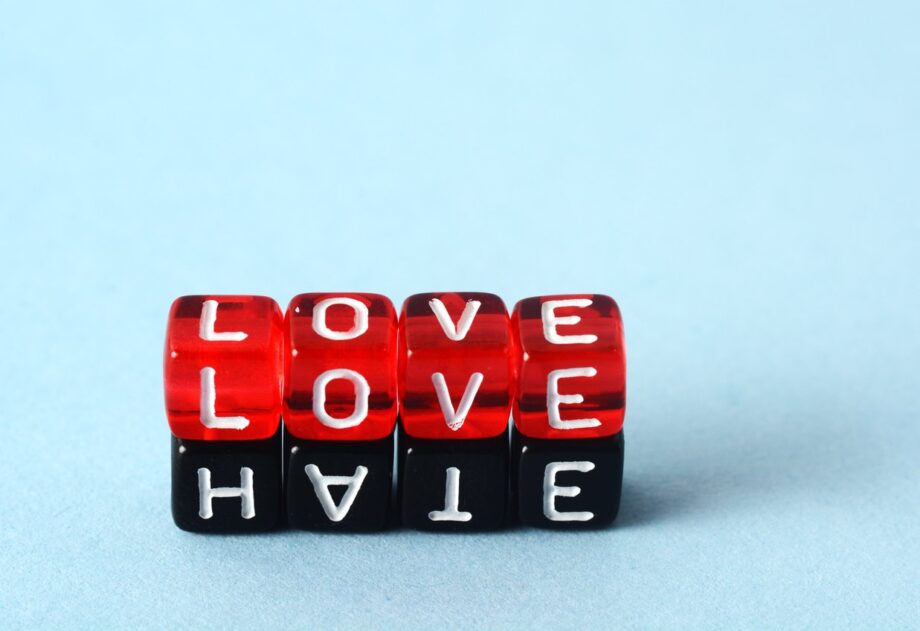Usually at Kinkly, we talk about sex, but relationships go hand-in-hand with that topic. And, sadly, many relationships just aren't healthy. We’ve talked about spotting an emotionally abusive relationship, but what happens when you realize you're in one? How do you end a relationship with someone who doesn’t recognize the needs of others? How do you stand up for yourself when you are feeling beaten down? How do you leave when you feel trapped?
Here's a list of five tips that can make it a little easier to find your way out of this extremely difficult situation.
Read: 7 Sigs Your Kinky Relationship Is Abusive
Talk About It
Talk to someone - a friend, a family member, a therapist - about what’s going on.
Why?
Abusers often isolate their partners from friends and family and the embarrassment many victims feel can make this isolation even worse. When one of the only voices you hear daily is your abuser’s (possibly drowning out even your own voice!) you can feel trapped and start believing that you’re the problem. Talking to someone can give you an outside perspective on what’s really going on and help you regain your own voice. Opening up to others can also help you to take stock of your personal support system. Talking about the problem is a vital first step toward leaving your emotionally abusive relationship.
How?
Speaking up can be scary. Whether you're afraid of how people might react, or worried that your partner will find out you spoke to someone about these issues, there are many reasons people in abusive relationships have trouble voicing their concerns. Practically speaking, it can also be hard to get time away from your partner to reach out to others, whether you live with them or just spend a lot of time together. Start by talking to one person, perhaps a close friend or family member - the person you feel safest talking to. Once you feel supported by one person, it will become easier to communicate with others about these issues.
Watch out for: Being hindered by embarrassment and/or fear
It’s often hard to admit that you're in an abusive relationship. You may fear that you will be blamed for letting it go on so long or even getting into the relationship in the first place. You may also feel embarrassed about shining a light on something that you’ve been trying to hide - maybe even from yourself - but it's important to remember that you're not at fault. Don’t let these fears keep you from getting the support you need. The people who care about you will not judge you. You have done nothing wrong.
Change Location
If at all possible, get out of your house for a couple of days.Why?
Because abusers often have a sense of entitlement and a disregard for the boundaries of others. Saying that you want time apart likely won't be enough to keep your partner from showing up at your door because they want to see you, talk about their feelings, or change your mind. They have become accustomed to a pattern in which you are always there and they don’t want that to end. You need to break this pattern and the best way to do so is to put physical distance between you and your partner and disrupt the regular routine.
How?
Stay with a friend or family member. If you have the ability to go away, take a trip. If you really can’t go anywhere, tell your partner you’ve gone out of town anyways and lay low. I know, it sounds ridiculous, but physical distance is key.
Watch out for: Begging
Emotional pleas, such as "I just need to see you," play to the fact that up until now you and your partner were probably together all the time and, suddenly, you have disappeared. Don’t fall for these pleas. Think about it: this is yet another instance where your partner tries to get you to meet their needs with no regard for your own. In this case, statements like "I can't live without you" aren't demonstrations of passion or love; rather, they're a tool to help your partner get what they want. Think about life as a movie. In the abuser’s mind, rather than each of us playing a lead role in our own stories, many of us exist simply as supporting characters in a story that is about them. Don’t follow that script.
Stick to Your Guns
Once you've said it's over, stick to it. Don't enter the break-up/make-up cycle.Why?
Here's something that isn't said enough: Break-ups are non-negotiable. When one person wants out, the relationship is over. The media tells us that if we "fight for" the people we love, they will eventually realize they love us, etc. This dangerous message has created a break-up dynamic where people who are being dumped seem to think they can refuse this decision. They can’t. This assumption is even more pronounced when in the hands of a narcissist (which many abusers are). Remember, if you say "it's over," it is.
How?
Be ruthless and be tough, even if you have to fake it (I use Dame Judi Dench for inspiration when I need to act tough but reserved). Have a couple of phrases ready to use repeatedly so you can stay unemotional and make it clear that you will not engage with efforts to change your mind, such as "I understand that, but this is the right decision for me." For more inspiration, read our article on how to increase self confidence.
Watch out for: Emotional manipulation
This is a time when an emotionally abusive partner might pull out the big guns. If they exaggerate their love for you, saying they've never loved anyone more, remember that love should make you feel awesome - not sad, afraid or insecure. Your partner may try to pull at your heart strings with tales of woe from their life - remember that their life may be very sad, but that doesn’t make them entitled to your happiness. Your partner may also rely on intimidation. Don’t fall for any of this.
Clear Out Their Stuff
Once you've broken up, the next step is to reclaim your personal space. Look around your house. Is your partner's stuff there? Get it out. All of itWhy?
It's important to take back control, starting with your home. Having their things in your home means that your ex is still present in your life, in a big way, and you may be reminded of them every time you see their clothing, toothbrush, couch, etc. If their stuff is at your place, it also gives them an excuse to make contact, so get rid of their things as soon as you can.
How?
You could drop their stuff at a mutual friend’s house, or leave it packed up outside your door, so they can come pick it up without making contact. Or, if there's too much to pack up, you could arrange for them to come get it. Just make sure to have a friend with you when they do. Make this happen as soon as possible. Give your ex a deadline, after which you will call a charitable organization to come take it away.
Watch out for: Trying to make you keep stuff
Look out for statements like "I want you to have that" or "I can’t believe you’re giving me that back." These kinds of sentiments are intended to make you keep their stuff (and probably to make you feel bad too). Keeping your ex's stuff will mean you're buying into their power play and their attempt to the two of you linked. Get their stuff out!
Cut Off Contact
If there aren't children involved, once you’ve handled all the logistical stuff you can cut off contact. When breaking up with an emotionally abusive partner the most important word in the english language is "block." That’s right, not "unfriend," "unfollow" or "erase" - BLOCK them! Create a world in which that person simply doesn’t exist.Why?
Two reasons:
- They WILL try to manipulate you back into the relationship.
- Your partner has become accustomed to having someone like you absorb a lot of their anger/sadness/insecurity and, frankly, they are still going to want to vent to you.
How?
This site offers instructions for blocking users on most social media sites, various phone types, and email accounts. It even introduces several apps that give you a heads up when someone you are avoiding is in your geographic vicinity.
Watch out for: "Can’t we still be friends?"
I know this may sound petty. I know lots of folks pride themselves on remaining friends with exes - but this isn’t the time for that. We’ve discussed how abusers make everything about them, and this is the reason why cutting off contact is crucial. The old patterns will still be there, so when you agree to "try being friends" they might think you mean that you'd like to "work towards getting back together." Soon, what is supposed to be a platonic friendship might look very similar to the way things were before you "broke up". Don’t fall for it. It may feel petty but it’s worth it. CUT IT OFF.
Getting out of an emotionally abusive relationship can be a tedious process, but if you follow these steps, and stick to your guns, you'll be able to get to a healthier place of independence, support and self-love.




